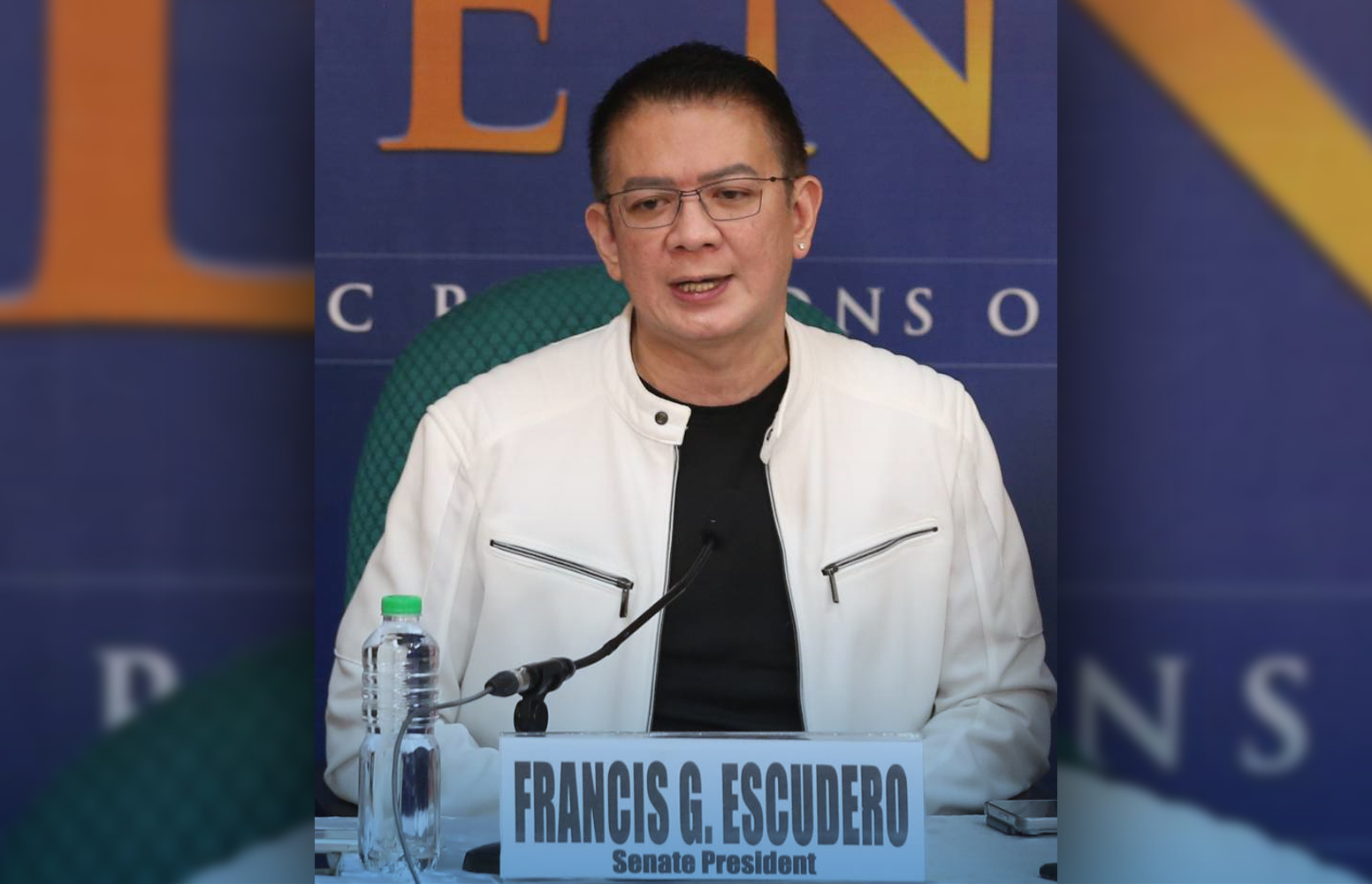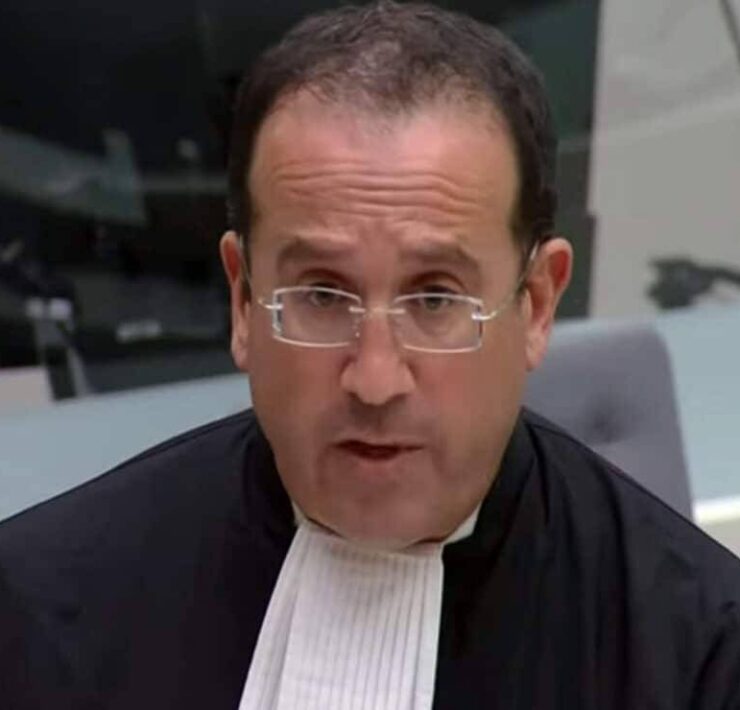Chiz: No Senate trial of Sara before June

- The current Senate has adjourned without convening as an impeachment court, so it’s almost certain that the next Senate following the May elections will have to conduct the trial of VP Sara Duterte.
- Senate president Francis Escudero says the trial could start in June, but the decision could be rendered during the next Congress.
- Escudero precludes the holding an impeachment trial during the congressional break as the complaint was not referred to the plenary to establish a basis for convening the impeachment court by the Senate.
- President Marcos may call for a special session, but only to tackle “important things and bills that need to be passed,” not to convene an impeachment court, says Escudero.
The Senate of the next Congress following the midterm elections will decide the fate of impeached Vice President Sara Duterte in a trial after the chamber adjourned without convening as an impeachment court, according to Senate President Francis “Chiz” Escudero.
“The [trial] will likely extend into the 20th Congress. The decision will be rendered during the 20th Congress, that’s almost certain,” Escudero said during the Kapihan sa Senado forum on Thursday.
Congress adjourned on Wednesday ahead of the campaign for the upcoming polls.
“The earliest Senate action on the impeachment could come on June 2, after the elections, and when the majority of the Senate has decided whether to amend or what to include in the rules of impeachment,” Escudero said.
The impeachment rules have to be reviewed and some “loopholes” need to be fixed, and this could be done during the current recess, he said.
The Senate received the articles of impeachment from the House of Representatives shortly before the senators adjourned their session on Wednesday.
The impeachment complaint, which was the fourth filed against Duterte in the House, was signed by 215 representatives. President Marcos’ son, Ilocos Norte Rep. Sandro Marcos, was the first to sign the document, and his cousin, Speaker Martin Romualdez, was the last signatory.
The Vice President is accused of culpable violation of the Constitution, bribery, graft and corruption, and betrayal of public trust, and other high crimes, including her alleged misuse of up to P612.5 million in confidential funds of her office and the Department of Education from 2022 to 2023.
Escudero said that holding an impeachment trial during the congressional break “legally cannot be done” as the complaint was not referred to the plenary to establish a basis for convening the impeachment court by the Senate, which had been serving as a legislative body.
“For an impeachment court to be convened, the Senate must be in session. To swear in the impeachment judges, the Senate must be in session. While the trial may proceed even during recess, it must be started, convened, and the senator-judges sworn in during session,” he said, noting that this happened during the impeachment trial of the late Supreme Court Chief Justice Renato Corona.
Escudero said the President may call for a special session, but only to tackle “important things and bills that need to be passed,” not to convene an impeachment court.
“Of course, when a special session is called, whether we agree or not, of course we will attend,” he said.
He said the Senate could not be blamed for any delay in the impeachment trial as it received the articles of impeachment late on Wednesday.
2 months to study
Escudero pointed out that the House had two months to study the impeachment cases against Duterte before they transmitted it to the Senate. The first complaint was filed on Dec. 2 last year.
“I think it’s not right that after they sat on this for months before acting on it, they’re going to force us and tell us to hurry up. That’s not right and I won’t allow it,” he said.
“We won’t rush it but we will not delay it either. We will not allow ourselves to be pressured by anybody. We will do our job according to the Constitution and the Senate rules,” said Escudero.
Three of the 11 members of the House prosecution panel and two former lawmakers disagreed with Escudero’s position in not immediately convening the impeachment court.
‘Proceed forthwith’
Iloilo Rep. Lorenz Defensor cited the Constitution which said that once the articles of impeachment had been submitted to the Senate, it “shall forthwith proceed” with the trial.
“Since the Constitution provides that trial shall ‘proceed forthwith,’ if we interpret ‘forthwith (immediately, right away),’ then ideally it should start as soon as possible,” Defensor said.
Defensor, a lawyer, said the impeachment process was “sui generis”—a class of its own—that is not related to the legislative calendar of Congress.
What was adjourned by Congress was its legislative calendar to perform its lawmaking tasks, he said.
“Impeachment … is a unique proceeding. And since it is not part of the legislative function, we can say that they can convene without waiting for session to resume on June 2,” said Defensor, a long-standing member of the House committee on constitutional amendments.
He said that an early start of the impeachment trial would serve the interest of justice and benefit the Vice President herself.
“This is the perfect opportunity for all parties, especially the Vice President. This is the perfect opportunity for her to be given due process, for a chance to lay down the evidence in her favor and to clarify things during the trial,” Defensor said.
Replaceable prosecutors
1-Rider Rep. Rodge Gutierrez said the Senate was a “continuing body” that could start the trial now and proceed with it when the new Congress convenes in June.
In case the House needed to, it can replace members of its prosecution panel if not all of the 11 could continue to serve after the May polls, he said.
The House was setting up its impeachment secretariat to prepare for the trial, Gutierrez said. “If ever the Senate does indeed interpret that they could proceed with trial as early as March, we will be ready. If they decide that it will continue after June 2, we will be even more ready,” he said.
Assistant Majority Leader and Lanao del Sur Rep. Zia Alonto Adiong, another member of the prosecution panel, said that a House prosecutor who could not continue on to the 20th Congress may be able to participate as a private prosecutor if the Senate impeachment rules would allow this.
Not in the rules
Former Bayan Muna Representatives Teddy Casiño and Neri Colmenares pointed to the same constitutional provision cited by Defensor in pushing for an immediate trial of Duterte by the Senate.
Casiño, a “veteran” of four impeachments, said that Escudero’s claim that Congress had to be in session for the Senate to convene as an impeachment court was “not in the rules.”
He participated in the impeachments of President Joseph Estrada in 2000, President Gloria Macapagal-Arroyo in 2006, and Ombudsman Merceditas Gutierrez and Corona, both in 2011.
“There is nothing (in the Constitution) that states Congress has to be in session (to start a trial) and I think the drafters of the Constitution precisely did not put it there because they know that at any time an impeachment complaint can proceed and it isn’t dependent on whether Congress is in session,” he explained.
Even if on recess
Colmenares, who acted as prosecutor in Corona’s trial, highlighted the nature of impeachment as an accountability mechanism and stressed the constitutional mandate of the Senate to “proceed forthwith” with the trial once it receives the articles of impeachment.
“So, the Senate can really start the impeachment trial even if Congress is on recess,” he said.
“The impeachment court is not a legislative body. So, if you’re a legislator, you take an oath as legislator. But if there’s an impeachment trial, senators need to take a different oath as impeachment judges,” Colmenares said.
He cited Senate rules which said that it must suspend all hearings and legislative proceedings to convene an impeachment court and that the Senate no longer had any pending legislative work.
He noted that the Senate, by adjourning without tackling the impeachment complaint, has placed itself in a situation where it couldn’t officially respond to the House.
“The only way out now is for the President to call a special session of Congress … if only to address the demand of the Filipino people to proceed with the impeachment trial,” Colmenares said.





















